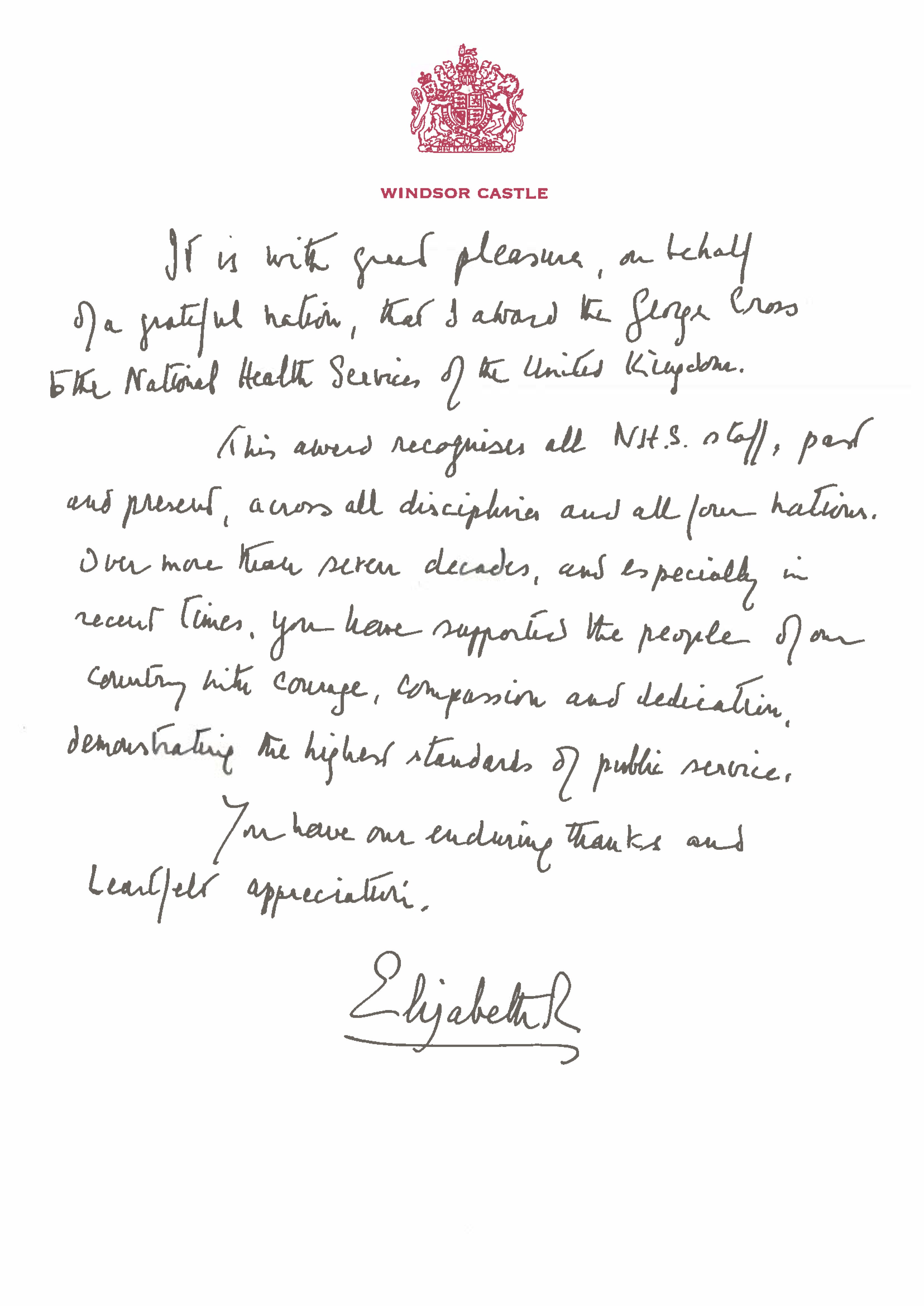Is the George Cross a fitting award for the NHS?
The health service is the nearest thing the UK has to a national religion


It goes without saying that, for many working so hard in the health service, the award of the George Cross is very welcome, but perhaps not quite as welcome as, say, adequate supplies of protective equipment last year, filling the 85,000 vacancies in the NHS in England alone, or, indeed, a pay rise at least matching inflation.
Still, it is a great honour, surpassed only by the Victoria Cross. Given that so many of those working in the NHS and care sectors have lost their lives directly and indirectly to Covid, the VC might also have been a fitting gesture. However, the VC doesn’t have the same tradition as the George Cross of being awarded collectively. An alternative, proposed in various quarters last year, was for an individual “campaign” medal for each member of the NHS workforce. That, though, might have carried a little more political baggage, and thus be divisive. A collective award instead fits bitter with the way teamwork and camaraderie play such a large part in the success of the NHS, and is more dignified and distinguished. An individual medal would also have been impossible to administer without creating anomalies and unfairness.
Given that news of this award, “for gallantry”, made on the NHS’s “birthday” was not spun or leaked, and it may be that the palace had a greater than usual role in it, and the Queen more closely involved. Certainly her commendation, handwritten, suggests a close personal interest. It is careful to state that the award is made to the National Health Services (plural) of the United Kingdom, whereas government ministers often give the impression that devolution of health services to Edinburgh, Cardiff and Belfast never happened. It is also for the entire 73 years of service by all the physios, doctors, cleaners, porters, nurses, paramedics, anaesthetists, midwives, clerical staff, surgeons, auxiliaries, cleaners, managers, cooks, psychiatrists, radiographers, haematologists – the lot.

It is a gracious message: “It is with great pleasure, on behalf of a grateful nation, that I award the George Cross to the National Health Services of the United Kingdom. This award recognises all NHS staff, past and present, across all disciplines and all four nations. Collectively, over more than seven decades, they have supported the people of our country with courage, compassion and dedication, demonstrating the highest standards of public service. You have the enduring thanks and heartfelt appreciation of us all.”
That should be sufficient to remove most of the politics from the gesture. Had it been perceived as the brainchild of Matt Hancock or Boris Johnson, it would have been tarnished in the eyes of some.
The NHS, or NHS GC, as it may be known, is only the third such collective recipient of the honour. Having been instituted as the personal initiative of the Queen’s father, George VI, in 1940, it was given to the “fortress island” of Malta after the second siege by Axis forces in 1942. Some have claimed it was pure propaganda, rather like the special ceremonial sword sent by the king to Stalingrad, but it was incorporated into the insignia and flag of Malta, where it remains today.
In 1999 the Royal Ulster Constabulary was the next collective recipient, which might have been controversial had the RUC not been scrapped shortly afterwards. It had the air of a valedictory consolation prize in a province where honours, badges and emblems carry great significance.
Not so, the NHS, which has been honoured, variously, on the stamps, a 50p coin, a weekly “clap for carers”, ubiquitous rainbow flags, Sir Tom Moore and countless charitable appeals, and prominently at the opening ceremony of the London Olympics in 2012. As has often been remarked, the NHS is the nearest thing the British have to a national religion, if not a cult, which very few politicians dare to challenge, and most wish (or pretend) to worship. Hence the gong.



Join our commenting forum
Join thought-provoking conversations, follow other Independent readers and see their replies
Comments